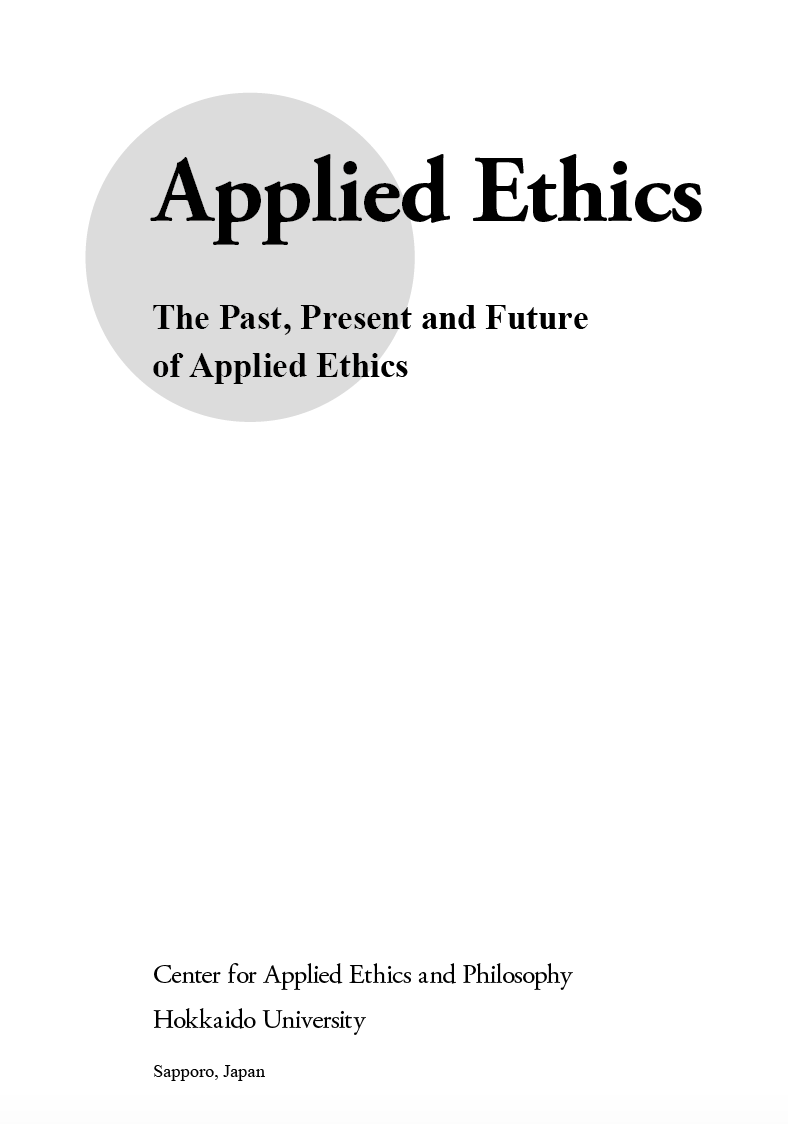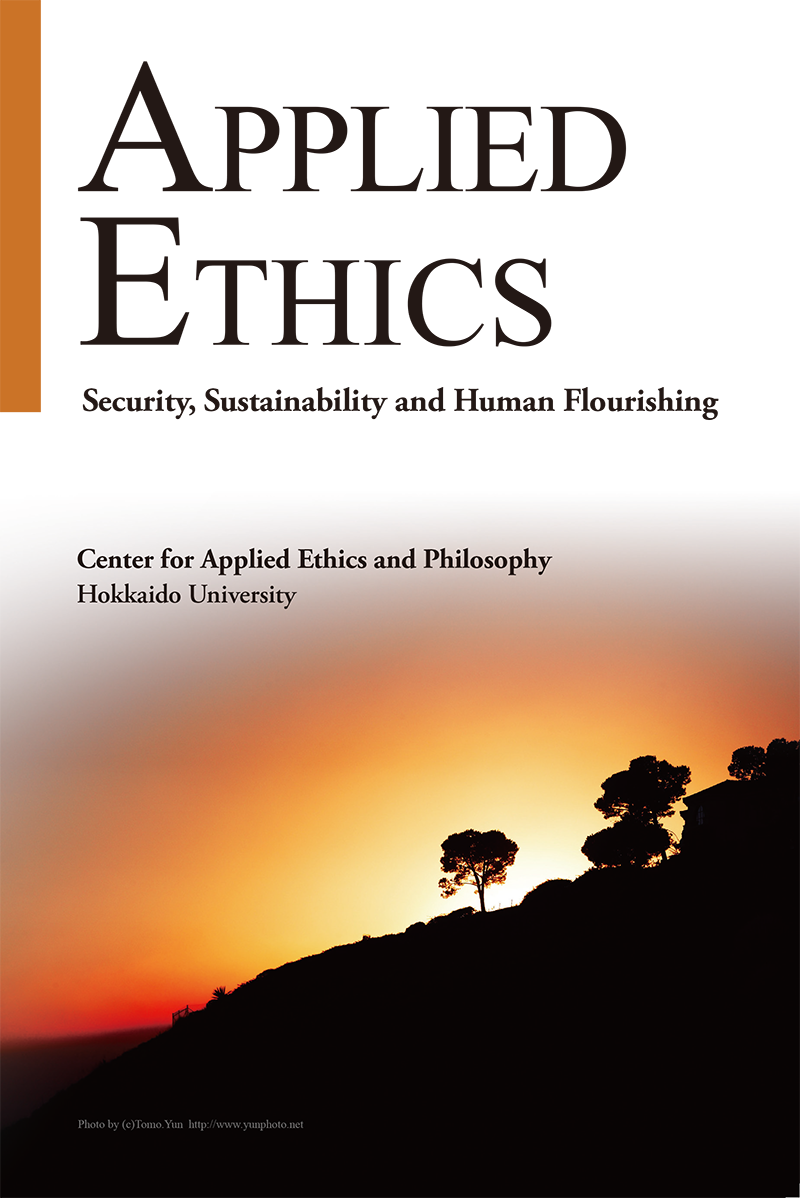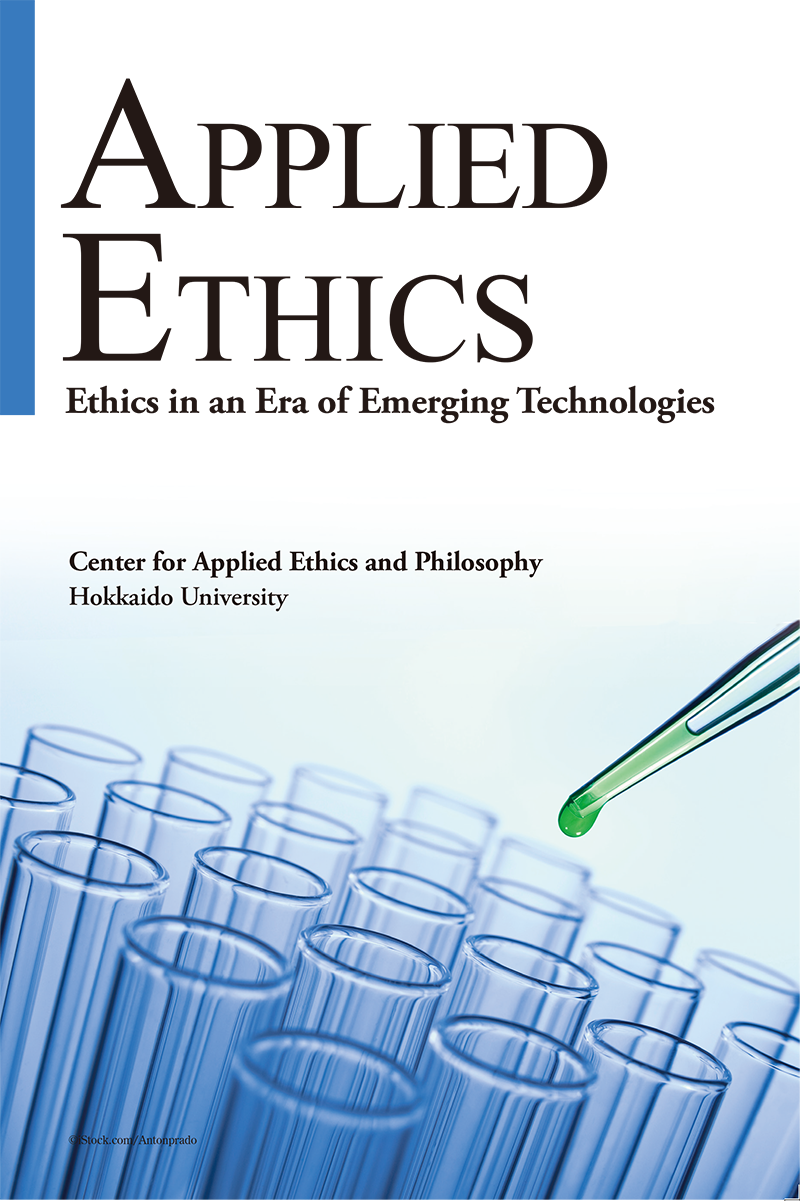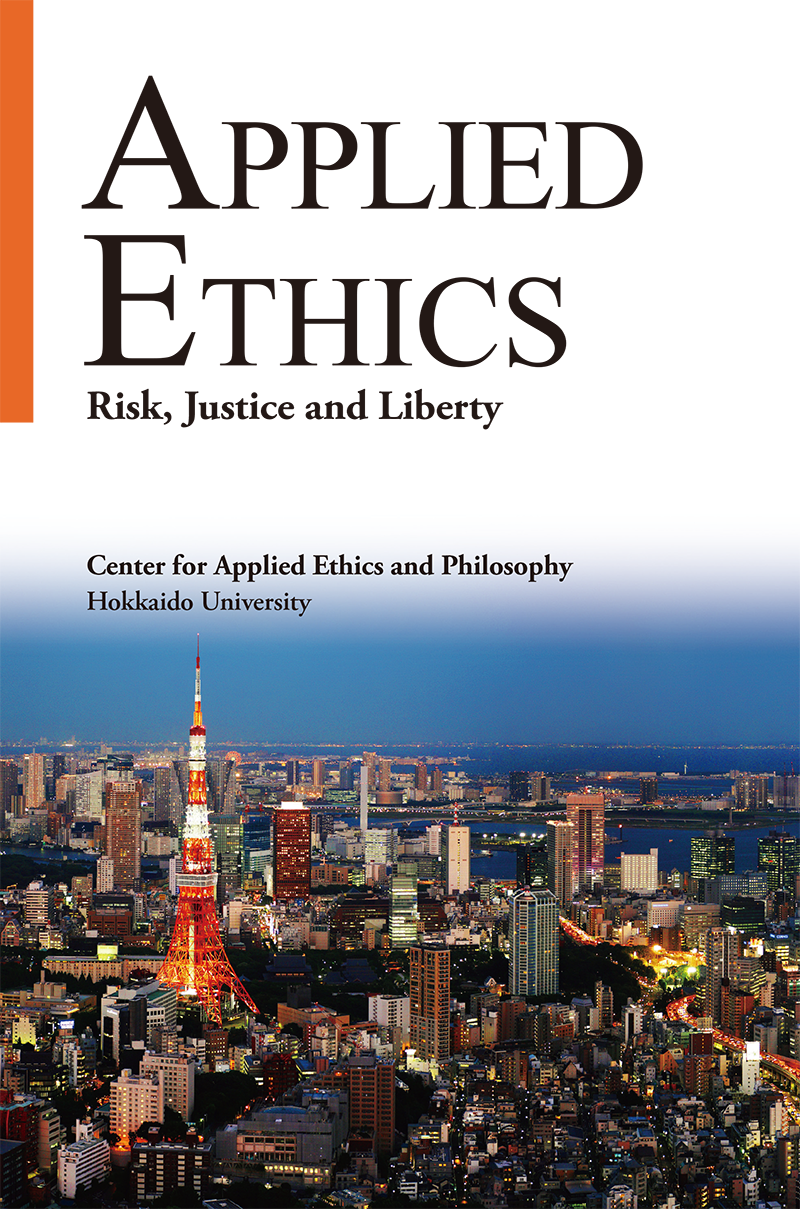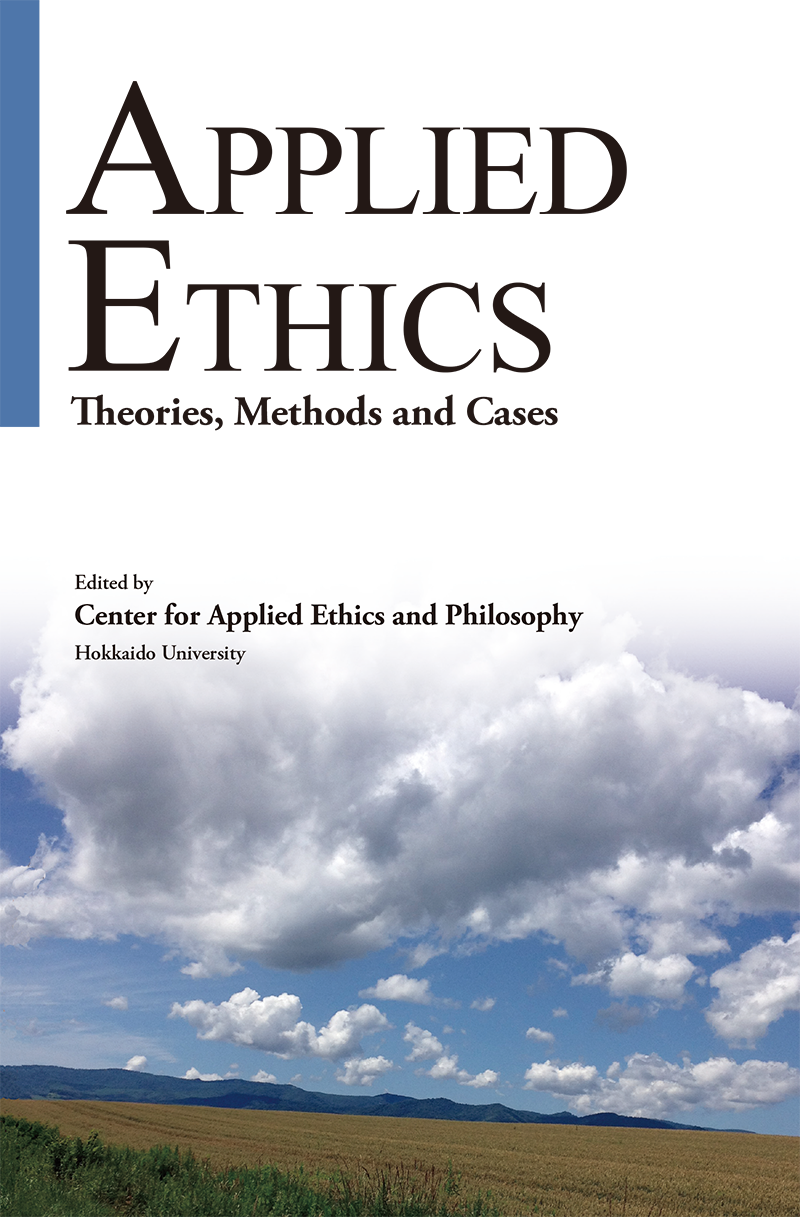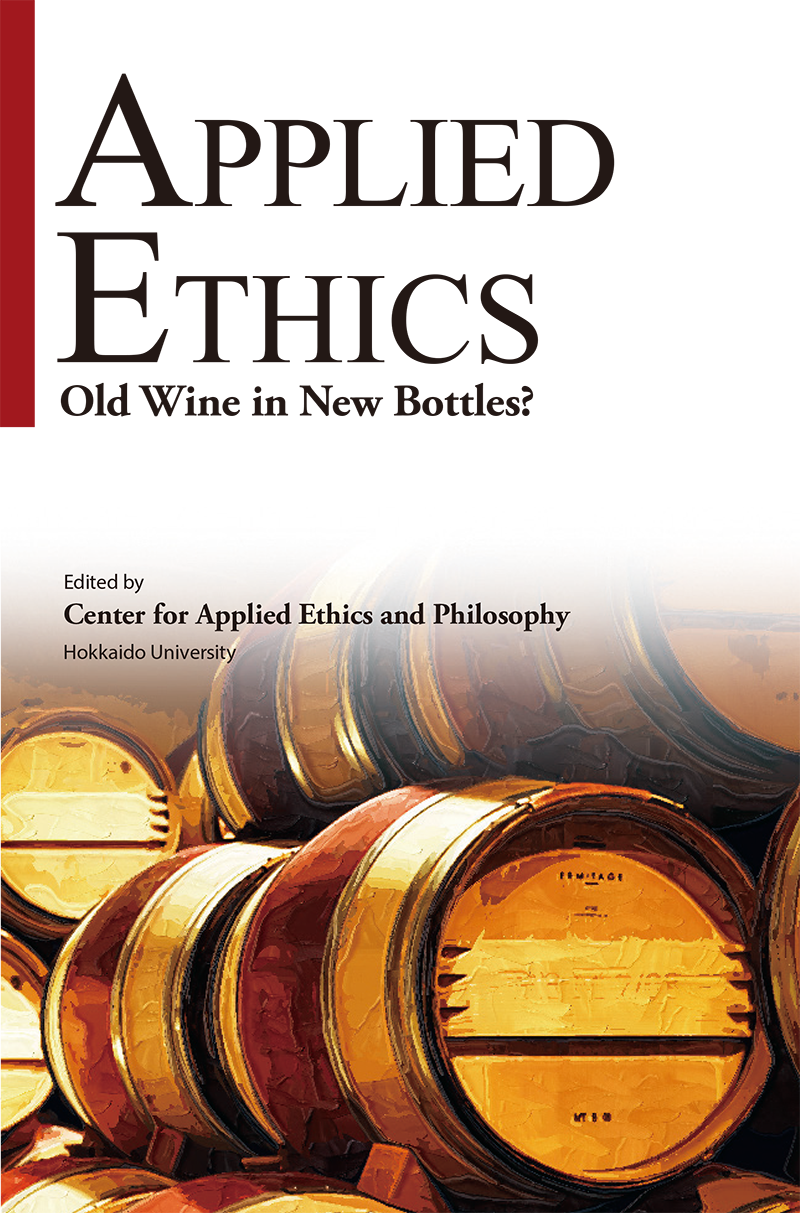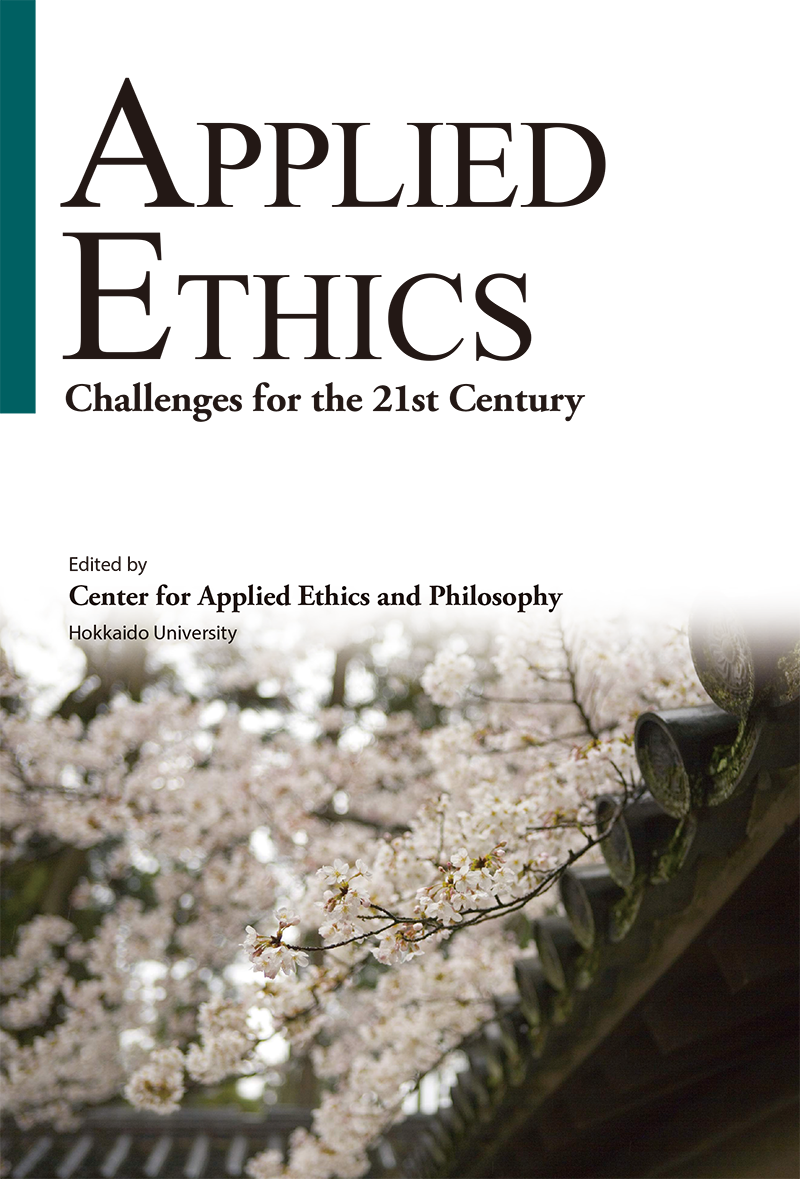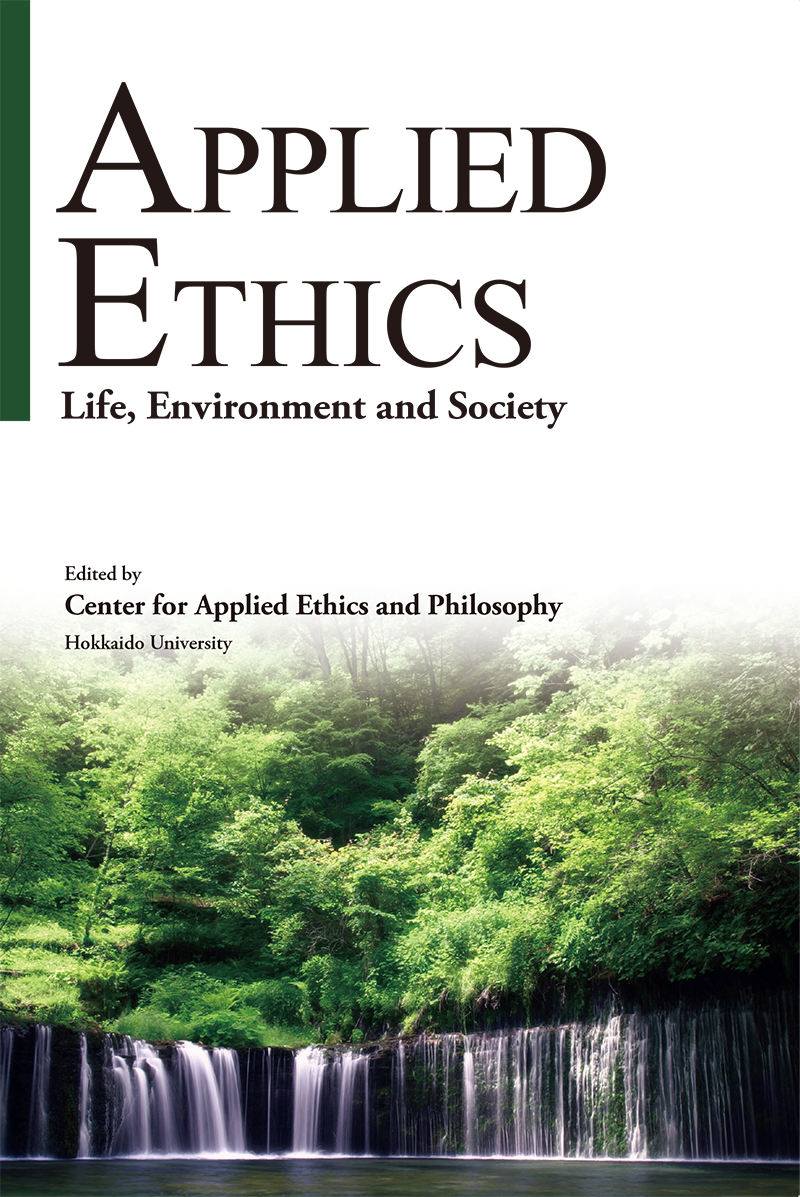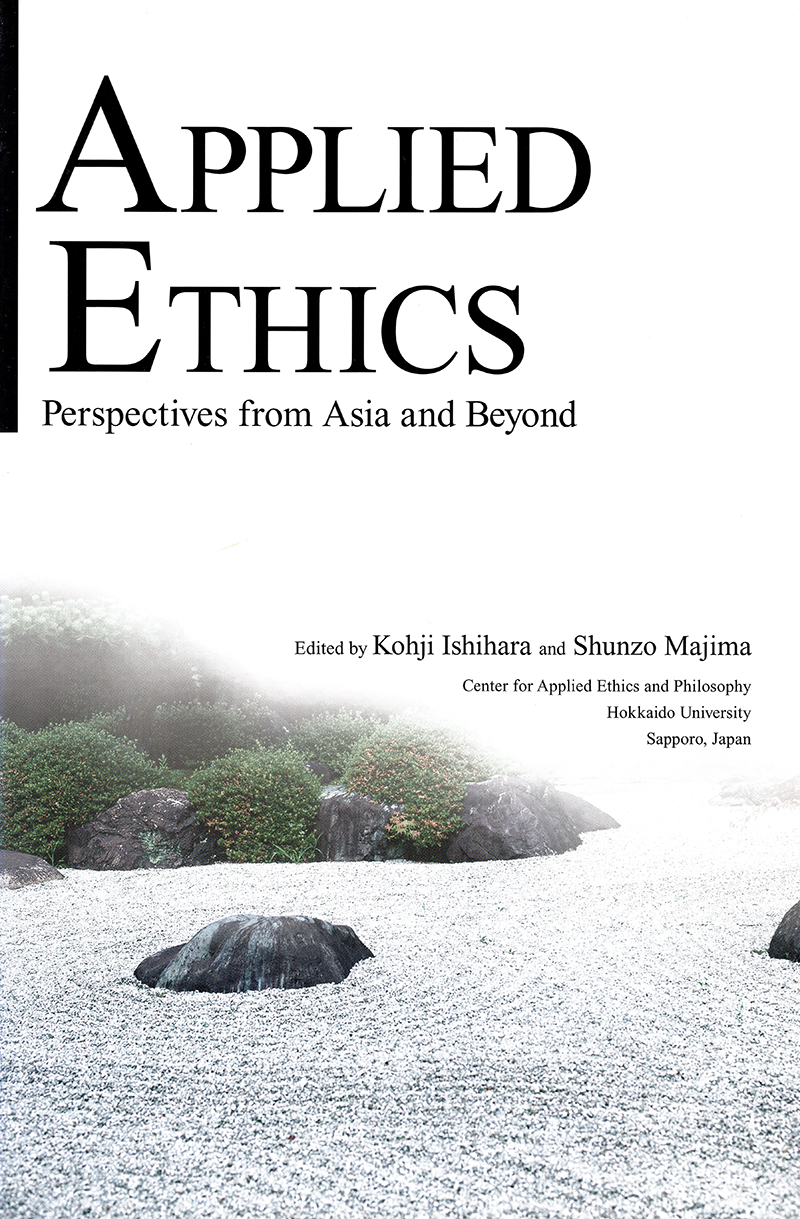Applied Ethics 2017
Contents
- Ethics in the Codification and Commodification of Indigenous Culture
- The Good Life and the Moral Demands of Poverty
- Art for Bark’s Sake : Ethics of Animal Representation in Visual Arts
- What is Moral Application?
Towards a Philosophical Theory of Applied Ethics - From Cyborgs to Companion Species :
Affinity and Solidarity in Donna Haraway’s Feminist Theory - The Ethical Implications of Strategic Fouling
- Economic Well-being of Middle-aged Single Women :
Comparative Study with Single Men - The Gender Gap in Aspirations and Actual Realization
in Higher Education
Applied Ethics 2015
Contents
- On Sovereignty and the Relevance of the State in a Cosmopolitan World
- The Thoughts of Yi-zhuan as an Approach to Human Sustainability
- Differences between Artificial Intelligence and Artificial Morality
- Differences in Japanese Women’s Career Preferences by their Age at Childbirth
- Marginalisation and Women of Fishing Community: An Experience from India
- A Global Environmental Approach for Cross-Cultural Dialogue: From Noah’s Ark to the Security of Sustainable Flourishing Homelands
- Relation among the Children’s Value of the Self-employed Father, Father’s Nurturing Behaviors, and Adolescent’s Academic Achievement: Focusing on the Family of Self-employed of Shanxi Province in China
Applied Ethics 2014
Contents
- Impacts of Emerging Technologies on Cosmopolitanism and Communitarianism
- Ethical Issues in Multifetal Pregnancy Reduction
- The Ethical Status of Our Actions in Virtual Worlds
- A Hegelian Approach to Applied Ethics and Technology
- How Have Japanese Philosophers Responded to the Problems of Risk Arising from the Fukushima Nuclear Accident: Can We Learn from Them?
- From Environmental Ethics to the Ethics of the Ecumene: The Landscape of the Genetically Modified Crops
- Patients’ Self-Determination Revisited: a Legal, Medical-Sociological and Ethical Examination of Patients’ Autonomy in End-of-Life Care
- Applied Ethics and Decision Making: A Method for Quantifying Risk and Utility
- On Food Ethics. Is Genetic Modification Technology Friend or Foe?: Reflections on the Documentary Film Le Monde Selon Monsanto
- Hope or Fear? How the Public Voice on the Usage of Electronic Patients’ Records in the UK Could Be Represented: Beyond the Bioethical Row over the Informed or Presumed Consent Model-
Applied Ethics 2013
Contents
- Cyberwar and Just War Theory
- Two Theses of Moral Enhancement
- Arguments in Professional Ethics Concerning Justice and Autonomy with Regard to the Ill, Injured and Disabled
- The Unbearable Lightness of Personal Identity: Messages from Bioethics
- Rethinking Survivor Guilt: An Attempt at a Philosophical Interpretation
- The Conflicting Terms of Environmental Justice: An Analysis of the Discourse
- Epicureanism about the Badness of Death and Experientialism about Goodness
- Liberty and Freedom: The Relationship of Enablement
- The Professional Morality of the Documentary Filmmaker
Applied Ethics 2012
Contents
- Moral Goodness, Social Kinds, Natural Kinds, and Homeostatic Property Clusters
- Does Democracy Monopolize a Right to Rule?: A Critique of Thomas Christiano’s Democratic Conception of Political Authority
- Conceptualising Environmental Ethics
- The Quality of Life of Experimental Animals: A Critical Reflection from Confucian Point of View
- Community of No-Self: The Ethical-Existential Structure of Community in Watsuji Tetsur? and Jean-Luc Nancy
- Fathers’ Supportive Parenting Practice and its Effect on Emotional Dependence and Self-reliance of High School Students: A Case of Rural Families in China
Applied Ethics 2011
Contents
- Moral Disagreement, Moral Realism, and Vagueness
- Well-being, Desire, and the Problem of ‘Miswanting’: Rethinking the Philosophical Theories of Well-being and the Practice of Informed Consent in View of Psychological Studies
- Moral Realism and Moral Disagreement: An Alternative Account
- Responsible Research?
- Human Enhancement and Human Nature
- The Relationship between Neuro-Intervention of Memory and Moral Responsibility
- Biocentrism and Synthetic Biology
- “Society in Science”: the DePGx Project and the Democratization of Health Policy Strategies through Public Deliberation
- Moral Obligations of States
- Honor in the Military and the Possible Implication for the Traditional Separation of Jus Ad Bellum and Jus In Bello
- Race-Based Welfare and Multiracialism
- How to Evaluate Justice Using Nussbaum’s Capabilities List?
- Pragmatism, Participation and Powersliding: On the Reciprocal Relationship between Environmental Ethics Thinking and Practice
- An Oriental Perspective on the Ethical Issue of Physician-Assisted Suicide from Taiwanese Point of View
- Reaching and Engaging Employees through Business Ethics Training : A Study of Two Organizations to Enumerate Various Practices and Innovations in Business Ethics Training
- Manga, Virtual Child Pornography, and Censorship in Japan
- A Study of Defensive Medicine in Japan
- Revision of Organ Transplantation Law in Japan: Brain Death, Presumed Consent, and Donation of Children’s Organs
- Parental Involvement and Children’s Perception of Competence: From Gender Perspectives
Applied Ethics 2010
Contents
- How Can Images of Aging Have Policy Implications?
- Goldstone and Gaza: The Justice of the Conduct of the Inquiry
- The Four Cultures: Hybridizing Science and Humanities, East and West
- Direct and Indirect Agency: Clarifying and Refining the Doctrine of Double Effect
- A Normative Account of Risk: The Case of Cognitive Enhancers
- Different Methodological Approaches to Bioethics
- Non-utilitarian Consequentialism and Professional Ethics of Teacher
- Medical Refugees in Japan: From Overseas Transplants to Organ Self-Sufficiency for Japanese Recipients
Applied Ethics 2009
Contents
- A Defense of Response-Dependent Account of Well-being
- The Discount Rate: A Small Number with a Big Impact
- Distributive Justice in a Global Village : In Defense of Theories of Global Justice
- Does Neurobiological Determinism Entail the End of Criminal Responsibility?
- From Genetic Enhancement to Neuro Enhancement
- Listen to My Heart: Paternalism vs. Patient Autonomy
- Killing Oneself or the Other
- Benefit Sharing in Biobanking: A Confucian Examination
- An Idea of Green Thinking: From Confucian Legacy to Global Warming
- The Role of Environmental Aesthetics in the Environmental Ethics : An Intimation from Aldo Leopold’s Land Ethic
- Reference or Construction? : An Attempt to Revise Integrative Social Contracts Theory
- Re-examination of the Relationship between PR and Marketing: Agency and Corporate PR Practitioners’ Ethical Considerations of Marketing PR
- Unearthing the Roots of Objective Reporting: The Integral Contributions of Walter Lippmann and Max Weber
- An Evaluation of the Graduate-level Ethics Training of Scientists in the United States.
- Professional Ethics Education for School Teachers in Japan
Applied Ethics 2008
Contents
- General Education and Morality in Japanese Universities
- Is “Objective Reporting” part of Media Ethics?:
A Philosophical Inquest - Science Communication in Hiroshima
- An Inquiry into the Relationship between Public Participation and Moral Education in Contemporary Japan: Who decides your way of life?
- What Kinds of Trust do we need for Biobanking and Beyond?
- Confucian Family Consent vs. Western Individual Consent: An Ethical Analysis
- True Self as World-Maker: The Foundation for Ethical Creativity in Nicolai Berdyaev and Abe Masao
- Norm Formation and Ethics in Transition Economies: The Styles of Capital Accumulation through the Diverse Privatization Processes
- Stewardship and Co-Creator?: Analysis of the Historical background of These Two Concepts
- Beyond the Precautionary Principle: Lessons Learned from the HIV crisis in France
- Regulation on Genetic Information in Spain
Maria Dolores Hervas Armero
Agent-Centered Approach in Engineering Ethics: A Consideration of the Methodology of Applied Ethics - Closing One’s Eyes to danger: Against the Disability Rights critique of Genetic Screening
- Human Enhancement, For and Against
- Ethics of Neuro-modulation: Possibility and Necessity of Neuroethics
- Media Violence within the Framework of Biomedical Ethics: Why Hurley’s Argument Fails
- Noncombatant Immunity and Restorative Justice: A Constructive Critique of Just War Theory
- Social Entrepreneurship: Ethical response to Social Inequality



